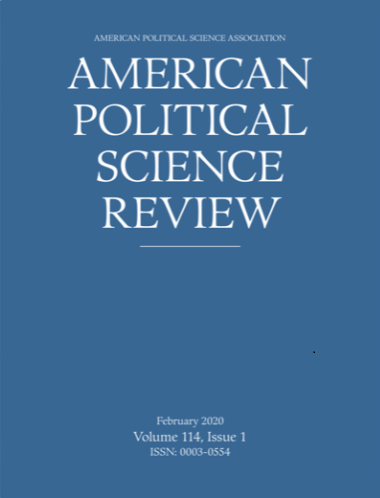国家和国际秩序形成中的全球奴隶制
IF 5.9
1区 社会学
Q1 POLITICAL SCIENCE
引用次数: 0
摘要
尽管奴隶制对基本的政治科学问题有着重要的影响,但作为一种全球现象,奴隶制在该领域几乎没有受到关注。我们认为,奴隶制在国家建设和国际秩序形成中发挥了重要作用。为了对抗美国/大西洋的历史偏见,我们主要从中东、非洲和亚洲获取证据。我们确定了两条基于奴隶的国家建设道路。在“奴隶即国家”的逻辑中,奴隶士兵和行政人员被用来克服间接统治对权力集中的限制。在“国家统治下的奴隶”模式中,经济以奴隶生产为基础,而奴隶生产本身又以制度化的国家胁迫为基础。规范往往禁止在社区内奴役,从而将需求外部化。这导致了奴隶贸易的军事化,并促进了越来越多的奴隶长途贸易。这些规范、军事和商业因素的结合形成了国际奴隶制度。本文章由计算机程序翻译,如有差异,请以英文原文为准。
Global Slavery in the Making of States and International Orders
Despite having key implications for fundamental political science questions, slavery as a global phenomenon has received little attention in the field. We argue that slavery played an important role in state-building and international order formation. To counter a historical U.S./Atlantic bias, we draw evidence mostly from the Middle East, Africa, and Asia. We identify two slave-based paths to state construction. A “slaves as the state” logic saw slave soldiers and administrators used to overcome the constraints of indirect rule in centralizing power. In a “slaves under the state” model the economy was based on slave production, itself underpinned by institutionalized state coercion. Norms often prohibited enslavement within communities, thus externalizing demand. This led to militarized slaving, and fostered increasingly long-distance trade in slaves. The combination of these normative, military, and commercial factors formed international slaving orders.
求助全文
通过发布文献求助,成功后即可免费获取论文全文。
去求助
来源期刊

American Political Science Review
POLITICAL SCIENCE-
CiteScore
9.80
自引率
5.90%
发文量
119
期刊介绍:
American Political Science Review is political science''s premier scholarly research journal, providing peer-reviewed articles and review essays from subfields throughout the discipline. Areas covered include political theory, American politics, public policy, public administration, comparative politics, and international relations. APSR has published continuously since 1906. American Political Science Review is sold ONLY as part of a joint subscription with Perspectives on Politics and PS: Political Science & Politics.
 求助内容:
求助内容: 应助结果提醒方式:
应助结果提醒方式:


